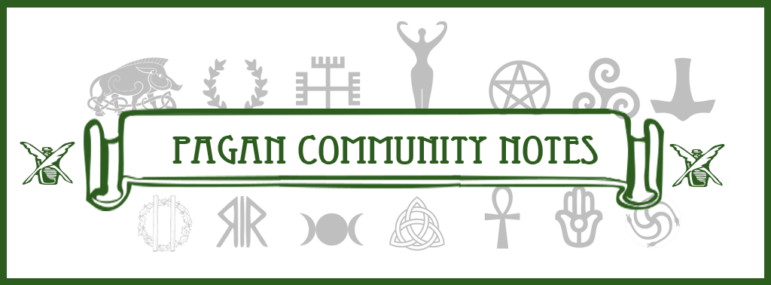
 TWH – Today is the first day of Kwanzaa, a seven-day African American and Pan-African holiday centered on unity, community, and culture. Kwanzaa is comprised of celebrating the Nguzo Saba or The Seven Principles: Umoja (Unity), Kujichagulia (Self-Determination), Ujima (Collective Work and Responsibility), Ujamaa (Cooperative Economics), Nia (Purpose), Kuumba (Creativity) and Imani (Faith).
TWH – Today is the first day of Kwanzaa, a seven-day African American and Pan-African holiday centered on unity, community, and culture. Kwanzaa is comprised of celebrating the Nguzo Saba or The Seven Principles: Umoja (Unity), Kujichagulia (Self-Determination), Ujima (Collective Work and Responsibility), Ujamaa (Cooperative Economics), Nia (Purpose), Kuumba (Creativity) and Imani (Faith).
The holiday was created by Maulana Karenga in 1966 after the Los Angeles Watts Uprising which escalated into riots that lasted for nearly a week in mid-August of 1965. Karenga incorporated traditions and practices from both Southern and West African cultures, being inspired partly by “first fruit” celebrations that are held in correspondence with the solstice. According to Karenga, Kwanzaa takes its name from the Swahili phrase matunda ya kwanza, which means “first fruits.”
Karenga synthesized the traditions of Continental African cultures and those of the African Diaspora. “This means that it is rooted in both the cultural values and practice of Africans on the Continent and in the U.S. with strict attention to cultural authenticity and values for a meaningful, principled and productive life.”
The Nguzo Saba or The Seven Principles:
1. Umoja (Unity): To strive for and to maintain unity in the family and community.2. Kujichagulia (Self-determination): To define and name ourselves, as well as to create and speak for ourselves.
3. Ujima (Collective work and responsibility): To build and maintain our community together and make our brothers’ and sisters’ problems our problems and to solve them together.
4. Ujamaa (Cooperative economics): To build and maintain our own stores, shops, and other businesses and to profit from them together.
5. Nia (Purpose): To make our collective vocation the building and developing of our community in order to restore our people to their traditional greatness.
6. Kuumba (Creativity): To do always as much as we can, in the way we can, in order to leave our community more beautiful and beneficial than we inherited it.
7. Imani (Faith): To believe with all our hearts in our people, our parents, our teachers, our leaders, and the righteousness and victory of our struggle.
The colors of Kwanzaa are black for the people, red for their struggle, and green for the future and hope that comes from their struggle. The Mishumaa Saba is made up of seven candles placed in a holder called a kinara which sits on a mat known as the Mkeka. The candles in the kinara consist of one black candle placed at the center, three red candles to the left, and three green candles to the right. Each candle represents one of the seven principles.

Kwanzaa candles (Kinara) [public domain]
The remaining candles are lit, one each following day, from left to right. The order of the lighting is designed to reflect that the people come first, then the struggle, and finally the hope that results from the struggle.
Since Kwanzaa was first celebrated in 1966, the observation of the holiday has spread to other countries and was first formally recognized by President Bill Clinton in 1997, the same year that the U.S. Postal Service offered stamps commemorating the holiday.
♥ ♥ ♥

Image credit: Blogtrepreneur – CC BY 2.0
MOSCOW, Idaho – Last week, University of Idaho history department chair, Rebecca Scofield filed a defamation lawsuit in federal court against TikTok tarot reader and psychic, Ashley Guillard. According to the legal filing, Guillard first began posting videos about the murders around November 22.
A few days later, Guillard began posting several videos naming Scofield as being responsible for the murders of the four students, claiming that Scofield had had a secret relationship with one of the victims.
The community of Moscow, which is home to the University of Idaho, was rocked by news of the murders of four students on November 13. Three of the murdered students, Madison Mogen, Kaylee Goncalves, and Xana Kernodle were roommates in an off-campus house with several other students. The fourth victim of the crime, Ethan Chapin, was reportedly dating Kernodle.
Scofield has repeatedly stated that not only did she not know any of the murdered students. She also did not have any of them in any of the classes she taught. Scofield and her husband were five hours away in Portland, Oregon visiting friends when the murders occurred. According to court records, they stayed in a hotel while there and checked out on the morning of November 13, well after the murders had been committed.
From November 24 through December, the court filings note that Guillard has continued to post videos making the claim that Scofield was responsible for the murders, and had conspired with another person who executed the crime.
When Scofield’s attorneys sent a cease and desist letter to Guillard on November 29, and then again on December 8, Guillard made more video posts holding the letter(s) and stating the only way she would remove the posts as if a court of law ruled against her.
Guillard considers herself an internet sleuth and psychic and has made previous claims of solving other high-profile murders, like that of rapper Takeoff (Kirshnik Khari Ball) who was shot and killed outside of a Houston bowling alley on November 1.
Scofield states in her legal filing that she is concerned the false claims could result in violence being directed at her and her family, which has negatively impacted her reputation and resulted in extra expenses due to the need to have cameras and surveillance equipment installed at her home.
There is no connection between Scofield and Guillard, and the two have never met or interacted according to reports.
There is also no evidence to suggest that Scofield is involved in the murder of the Idaho students.
Nevertheless to an interview that Guillard gave to The Washington Post after a tarot card reading indicated a teacher was involved and that also the word “history” came up in a reading, Guillard looked up faculty for the university and became convinced that Scofield was the person referred to into in the readings. Despite the court case being filed against her, Guillard remains adamant and convinced that Scofield is guilty.
Moscow law enforcement and its partners have yet to make an arrest in the case. The investigation into who murdered the four students is ongoing.
Upcoming Events:
-
- On Saturday, January 7, at 2:00 EDT, Cherry Hill Seminary executive director, Holli Emore, will talk about her recent trip to Egypt and her experiences as “an American Kemetic traveling in a Muslim country, the temples, tombs, wildlife, gardens, poverty, riches, beauty both lush and austere, the environmental danger to all Egyptian monuments, and everywhere the warmth and kindness of the people.” Emore’s talk, “Nile Pilgrimage” will be via Zoom, and pre-registration is required.
-
- As part of the Cherry Hill Seminary continuing lecture series, “Coming to the Center” will host noted English historian, Professor Ronald Hutton, on Saturday, January 28, at 3:00 pm EDT. Hutton has published over a dozen books and numerous articles, relating to contemporary Paganism, British folklore, and pre-Christian religions, as well as being featured on a variety of British television and radio programs. The event is free but requires pre-registration.
In other news:
- Last week Germany took the first step in fulfilling its promise to return over 1,100 Benin Bronzes to Nigeria that are held in various museums across Germany. Twenty-two Bronzes were returned during a ceremony the Foreign Affairs Ministry in Abuja, Nigeria on Tuesday. Annalena Baerbock, Minister of Foreign Affairs, said during the ceremony, “We are here to right the wrong. It was wrong to take them; it was also wrong to keep them. The bronzes are not just objects, they tell stories. They are part of your history. They are part of who you are.” Minister of Information and Culture, Alhaji Lai Mohammed, thanked Germany during his opening statements, as well as the various other institutions around the world who have taken steps to repatriate Bronzes within their collections. He also pointed out how the return of the Bronzes and other artifacts by Germany and other countries provides hope that eventually all the Benin Bronzes will be returned and called on British Museum to return the over 900 pieces it holds in its collections.
The traditional instruments of African cultures and countries are numerous and span a variety of types–from percussion to mbiras to strings. One remarkable instrument is the kora, which traditionally is a 2s-stringed and originated in West Africa. Traditionally, only men played the kora, while women sang the traditional songs in accompaniment.
Sona Jobarteh has changed that by being the first female player of the kora. Jobarteh is considered to be one of the world’s foremost and most well-known kora players. She comes from one of the five griot families in The Gambia. Griots are considered to be historians, storytellers, musicians, keepers of oral traditions, and sometimes even arbitrators tasked with resolving disputes.
The kora itself is a complex instrument and is played with the thumb and forefinger of each hand. It has a rich and intricate sound that is both similar to, and yet unlike any other single instrument. Jobarteh makes playing the kora appear easy with her flawless and dynamic performances, but it is not an easily mastered instrument.
Tarot of the week by Star Bustamonte Deck: After Tarot, by Pietro Alligo, artwork by Giulia Massaglia, published by Lo Scarabeo.
Deck: After Tarot, by Pietro Alligo, artwork by Giulia Massaglia, published by Lo Scarabeo.Card: Two (2) of Pentacles
The last week of the 2022 calendar year calls for careful balancing, plus utilizing the ability to adjust quickly to changes and shifts. Likely to figure prominently this week is the recognition of shifting landscapes that require energy for re-evaluating how time is managed, as well as the need for the space to fully consider how priorities might need re-ordering.
Often, there is a fine line between juggling responsibilities and completely losing control of the balancing act. Taking on more than can be reasonably managed, or focusing for too long on one aspect is likely to result in dropped balls and any given situation spiraling out of control.
The Wild Hunt is not responsible for links to external content.
To join a conversation on this post:
Visit our The Wild Hunt subreddit! Point your favorite browser to https://www.reddit.com/r/The_Wild_Hunt_News/, then click “JOIN”. Make sure to click the bell, too, to be notified of new articles posted to our subreddit.